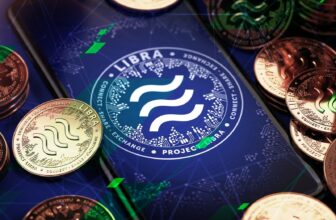
After bitcoin, Ether (ETH), the Ethereum network’s cryptocurrency, is the second-largest digital token (BTC). Comparisons among Ether and BTC are only inevitable, given that Ether is the second-largest cryptocurrency by market capitalization.
Both bitcoin and ether are considered as digital currencies, however both of them have many differentiating features. Bitcoin was created solely to be a digital currency. Whereas, the ethereum blockchain is a broader version of blockchain technology. If you wish to start trading in bitcoins, click here.
In many aspects, both of the digital coins are similar: both are traded on online exchanges and held in varying sorts of crypto wallets. Each of these currencies is decentralized, which means they aren’t issued or governed by a central bank or other governing body.
Both take the use of blockchain, a distributed ledger system. However, there are several key differences between the two highly popular cryptocurrencies in terms of market capitalization. We’ll look at the differences and similarities between the two in more depth in the article below.
Table of Contents
Bitcoin Basics

Source: unsplash.com
In January of 2009, Bitcoin was introduced. It introduced a novel concept laid out in a paper by the enigmatic Satoshi Nakamoto: this digital coin promises to be a virtual currency that is secure and decentralized, unlike government currencies.
There are no real digital coins; instead, there are balances linked to a cryptographically secure shared ledger. However this isn’t the first attempt at introducing digital money of this type, it’s the most successful in its early attempts. It is renowned as a forerunner in some form to practically all cryptocurrencies established over the past few years. If you are looking for a platform to start your trading journey, read more here.
Despite being routinely analyzed and disputed, this digital coin has proven to find a niche for itself and manages to survive with the financial system despite not being a formally recognized mode of payment or store of value.
Ethereum Basics

Source: unsplash.com
Blockchain technology is being utilized to develop apps that go beyond just facilitating the use of a digital currency. Ethereum is the greatest and most well-known accessible distributed technology platform, which was launched in July 2015.
Ethereum allows smart contracts and decentralized apps (dapps) to be developed and operated without any need for outage, scams, control, or third-party influence. ETH makes use of a programming language that operates on a blockchain network. It further allows developers to develop and run distributed apps.
Ethereum has a wide range of potential applications, all of which are fueled by its original cryptographic currency, ether (commonly abbreviated as ETH). Ethereum had a presale for ether in 2014, which was met with a huge response. Ether is used by developers to construct and operate apps on the Ethereum platform, similar to how gasoline is used to run instructions on a car.
Ether is primarily used for one reason, that is, it is exchanged as a digital currency while doing trades, in a similar manner to which other cryptos are used.
Key Differences
1. Based On Different Technologies:

Source: unsplash.com
While decentralized ledgers and cryptography are at the heart of both the Bitcoin and Ethereum systems, the two are vastly different in terms of technology. Transactions on the Ethereum platform, for instance, may include executable code, but data attached to Bitcoin network transactions are often used merely to keep track of transactions.
2. Block Time:
Another difference involves block time (an ether transaction is verified in seconds, whereas a bitcoin transaction takes minutes) and the algorithms used (Ethereum uses ethash while Bitcoin uses SHA-256).
3. Different Goals:

Source: unsplash.com
The Bitcoin and ETH systems are not the same in terms of their overall goals. While bitcoin was founded as a replacement for national currencies and so seeks to be a means of exchange and a store of values, Ethereum was designed as a network for immutable, programmable contracts and applications using its currency.
Although BTC and ETH both are cryptocurrencies, the fundamental goal of ether is to make the Ethereum smart contract and distributed application (dapp) platform easier to use and sell.
While bitcoin is marketed as a digital currency, ethereum uses its currency vehicle to support peer-to-peer contracts and applications. As a result, it has established itself as a more reliable digital money, whereas Ethereum focuses on smart contract uses.
4. Difference In Network Dize:
It’s crucial to remember that the ether network is way smaller than bitcoin’s: Ether’s global worth was just over $16 billion in Jan 2024, whereas the latter’s was nearly 10 times that, at over $147 billion.
5. Block Size Limit:

Source: unsplash.com
The bitcoin network has a 1 MB block size limit. This means that the maximum number of transactions in a single block is limited to 1 MB. It takes around 10 minutes to mine, or create, a new block on the bitcoin blockchain. This suggests that its network can process 3-4 transactions per second.
There exists no block limit on the ETH blockchain. The miners decide how many transactions should be included in a block. Each block takes 12-14 seconds to mine, and there are roughly 15 transactions per second.
Key Takeaways
Bitcoin hailed the birth of a new innovative type of digital currency that is free of any government or entity. Gradually, people began to recognize that the blockchain, one of bitcoin’s core ideas, could be used for various purposes.
Ethereum offered that blockchain is used not only to sustain a decentralized payment system but also to store computer code that could be utilized to run tamper-proof decentralized financial agreements and apps.
The Ethereum network’s token, ether, powers Ethereum apps and contracts. Even though it is designed to work similarly like Bitcoin, and not compete with it.
Final Word
Ethereum is yet another solution for a blockchain that enables the Bitcoin network, however it should not be considered a direct competitor to Bitcoin. However, ether’s success has forced it to compete with all cryptocurrencies, particularly from the standpoint of traders. Since its debut in mid-2015, ether has ranked second to bitcoin in terms of market capitalization for most of its existence.







